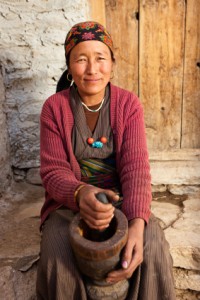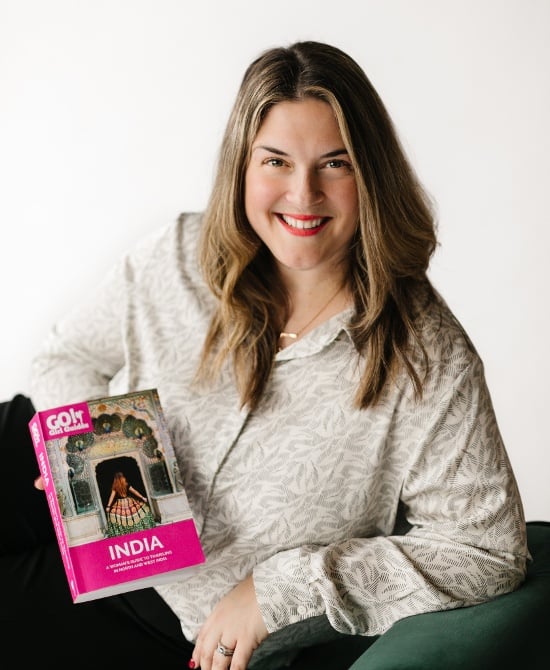Even the most privileged travelers consider Bhutan a special destination. Its secluded location, limited accessibility, and preservation efforts have shielded many from visiting this jewel in the Himalayas. Bhutan only opened its doors to tourism in 1974, with the number for tourists kept to an environmentally manageable level through government regulated tourist tariffs. Bhutanese are renowned for their happiness and are a proud people who wear their national costume with pride.
 Bhutan landscape
Bhutan landscapeAlthough Bhutan’s early history is rich in mythology, much of it remains unknown. It may have been inhabited as early as 2000 BC, but little was recorded until the introduction of Tibetan Buddhism in the 9th century by monks fleeing the turmoil in Tibet. Bhutan is also one of the only countries that has been independent throughout its history, never conquered, occupied, or governed by an outside power. The people of Bhutan have drawn a rich culture and made it the essence of their timeless identity.
Sodha Travel is proud to be one of the few travel companies that specialize in Bhutan. Our private Bhutan tours, personal connections, and expertise create custom packages that intimately showcase the culture and landscape. Enjoy a traditional hot stone bath in Paro after your trek to Paro Tatksang (Tiger's Nest) or enjoy dinner at the hillside home of a local family. Here is a list of our Bhutan FAQ's:
Do Bhutanese speak English?
English is commonly spoken, as it is the medium of instruction in schools. The national and official language of Bhutan is Dzongkha, a Tibetan dialect spoken mainly by Ngalop in the northern and western parts of the country. Road signs and government documents are written in English and Dzongkha, and the national newspaper is printed in English, Nepali and Dzongkha. In the villages, different ethnic groups speak their own language.
Can you tell me more about the locals?
Bhutanese people can generally be categorized into three main ethnic groups - Tshanglas, Ngalops and Lhotshampas. Slavery was abolished by the Third King Jigme Dorji Wangchuck in the early 1950s through a royal edict and the Bhutanese society is free of caste or class system. Although a few organizations have been established to empower women, Bhutan has generally been gender sensitive. The Bhutanese enjoy archery (the national sport), dancing, singing, and social gatherings.
 Local Bhutanese woman.
Local Bhutanese woman.Is altitude sickness common?
Yes, altitude sickness is common in Bhutan and can affect any traveler, regardless of age, strength, or fitness level. Symptoms include dehydration, fatigue, dizziness, shortness of breath, edema and insomnia. To alleviate the chances of altitude sickness, we recommend limiting alcohol, staying hydrated and planning for rest days in the higher elevations.
What is the currency of Bhutan?
Bhutanese currency is Ngultrum (Nu.) The Indian Rupee is also accepted throughout Bhutan, except Rs 500 and Rs 1000 currency notes.
What is the main religion of Bhutan?
About 75% of the Bhutanese practice Buddhism and the remaining 25% practice Indian and Nepalese influenced Hinduism. While the law provides for religious freedom, Drukpa Kagyup (a form of Mahayana Buddhism) is the state religion and the law prohibits religious conversions. The Ningmapa school of Mahayana Buddhism is also practiced, primarily in the eastern regions. The royal family practices a combination of Drukpa Kagyup and Ningmapa Buddhism. Most Ngalops are of the Drukpa Kagyup school and also hold a majority of positions in the government.
For more information on Bhutan, view our Sample Bhutan Tours and About Bhutan pages. You can also request a Bhutan Destination Guide.

%20(1)-2.jpg)

